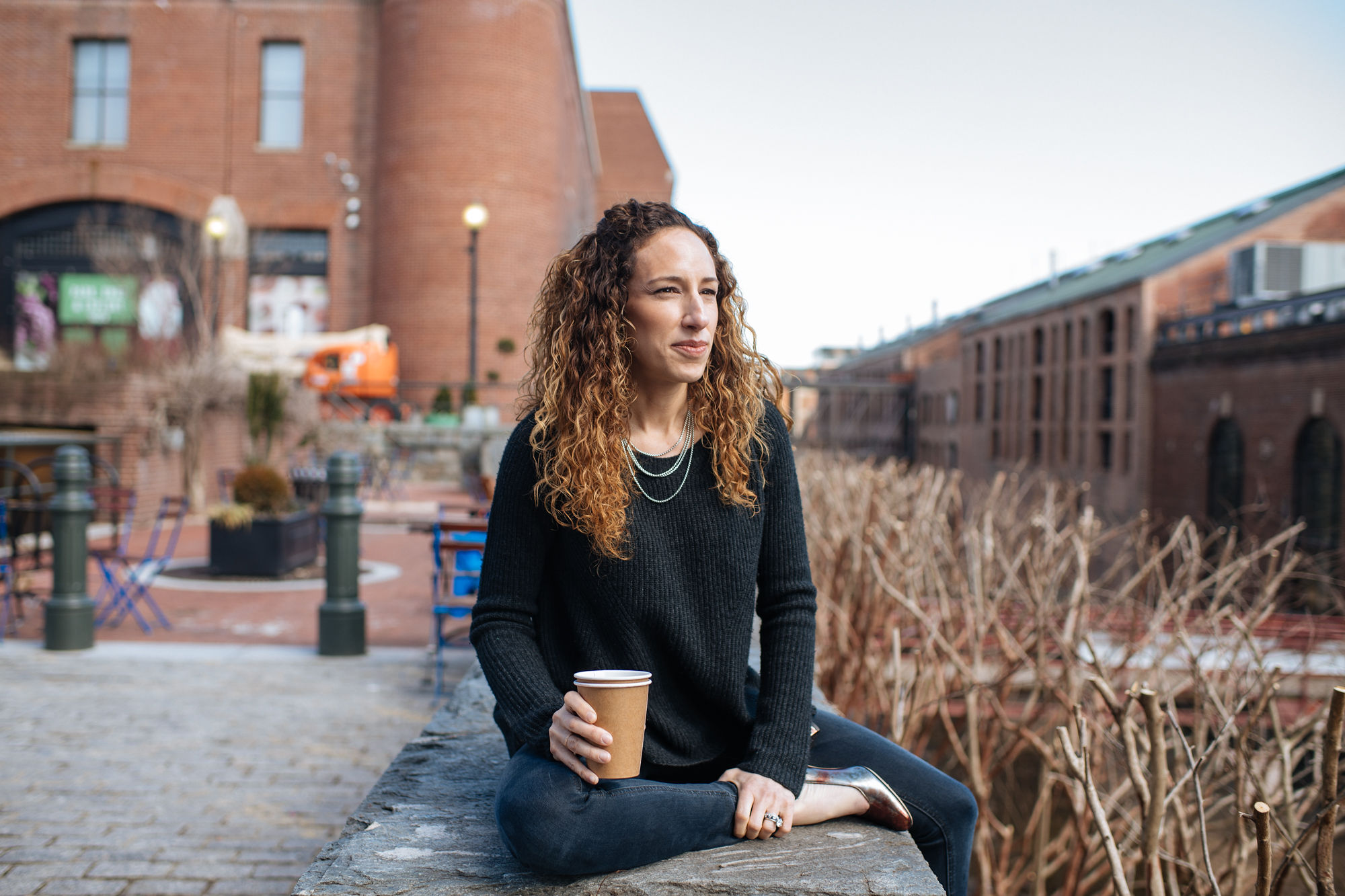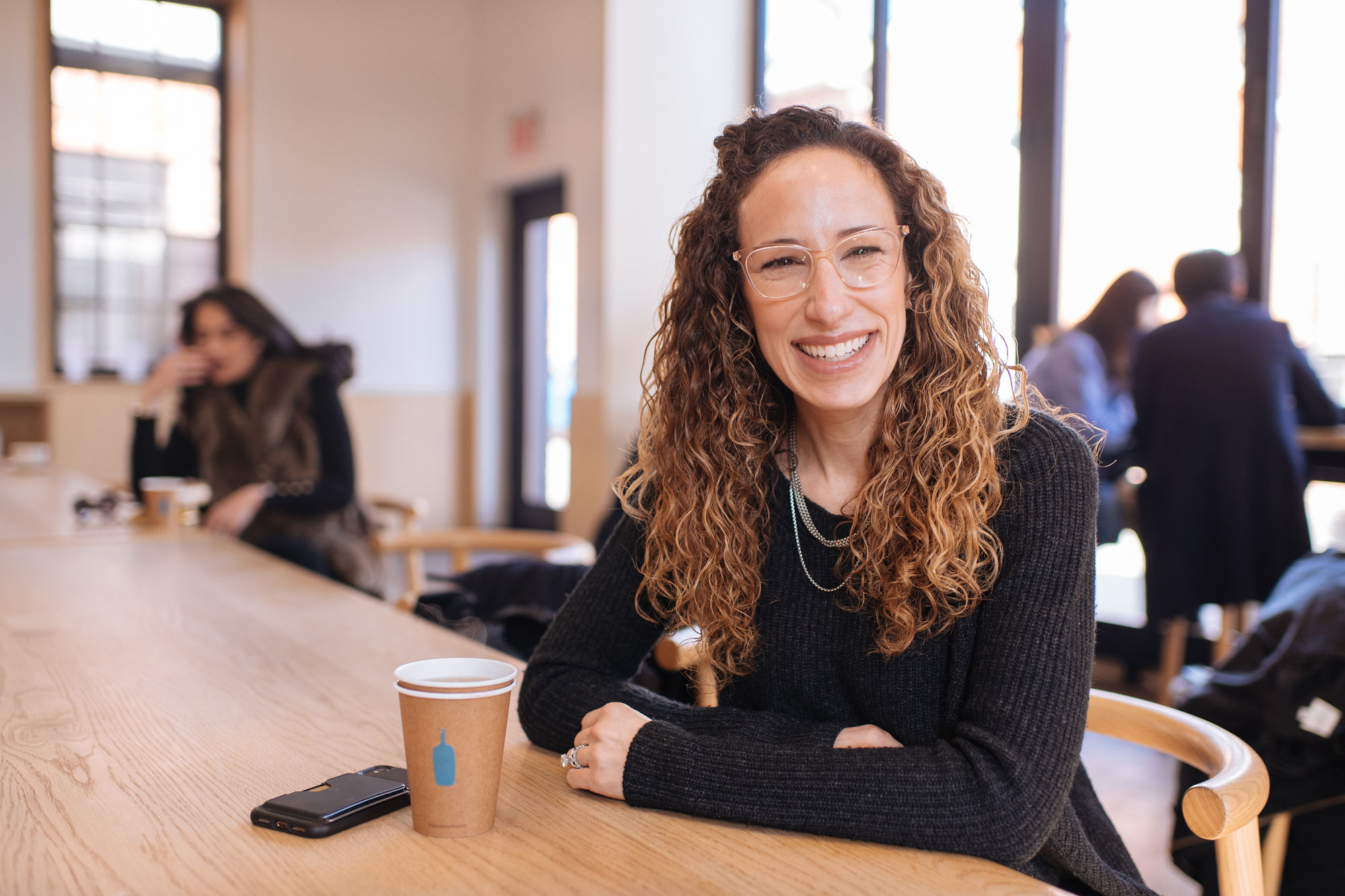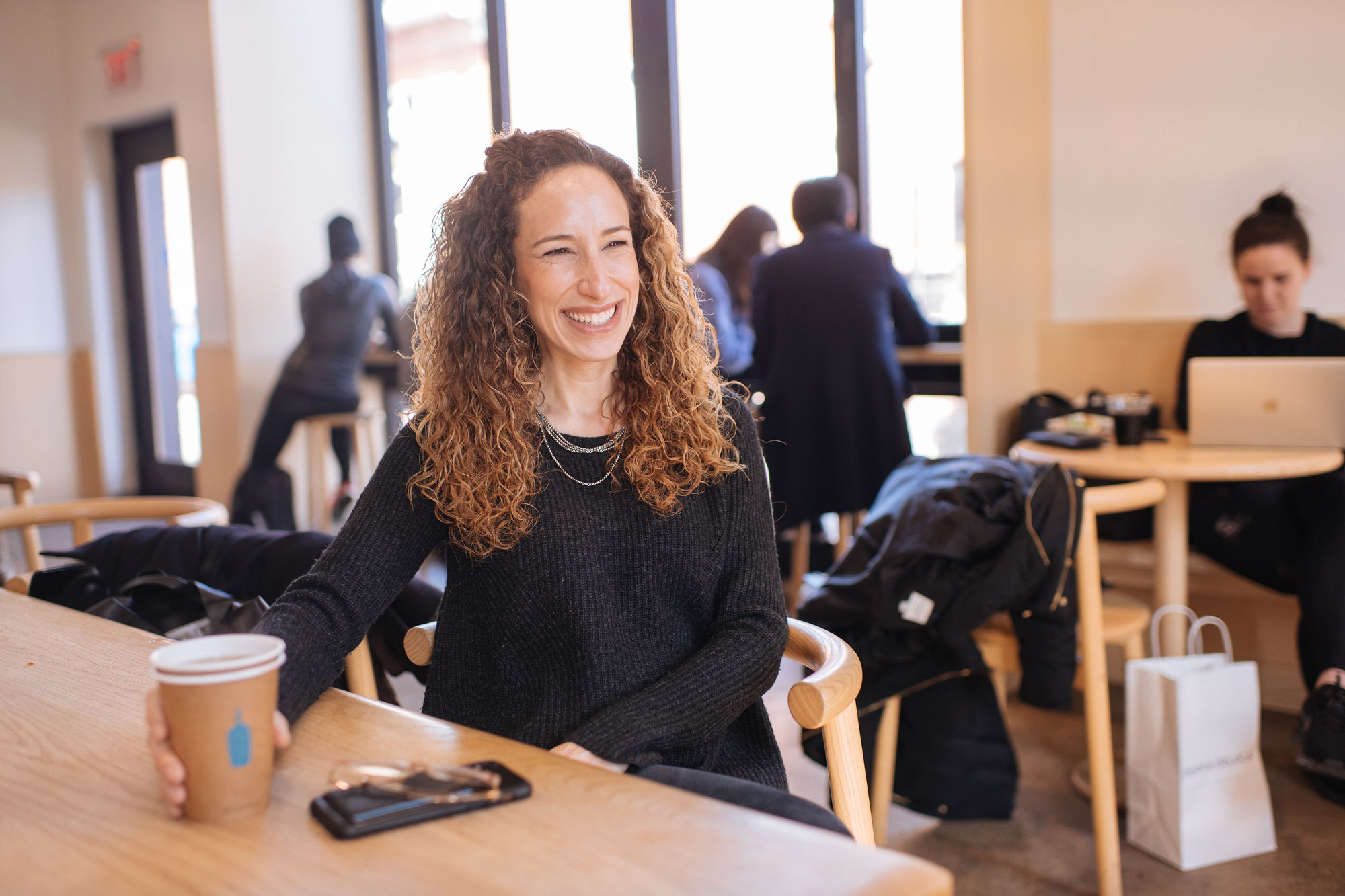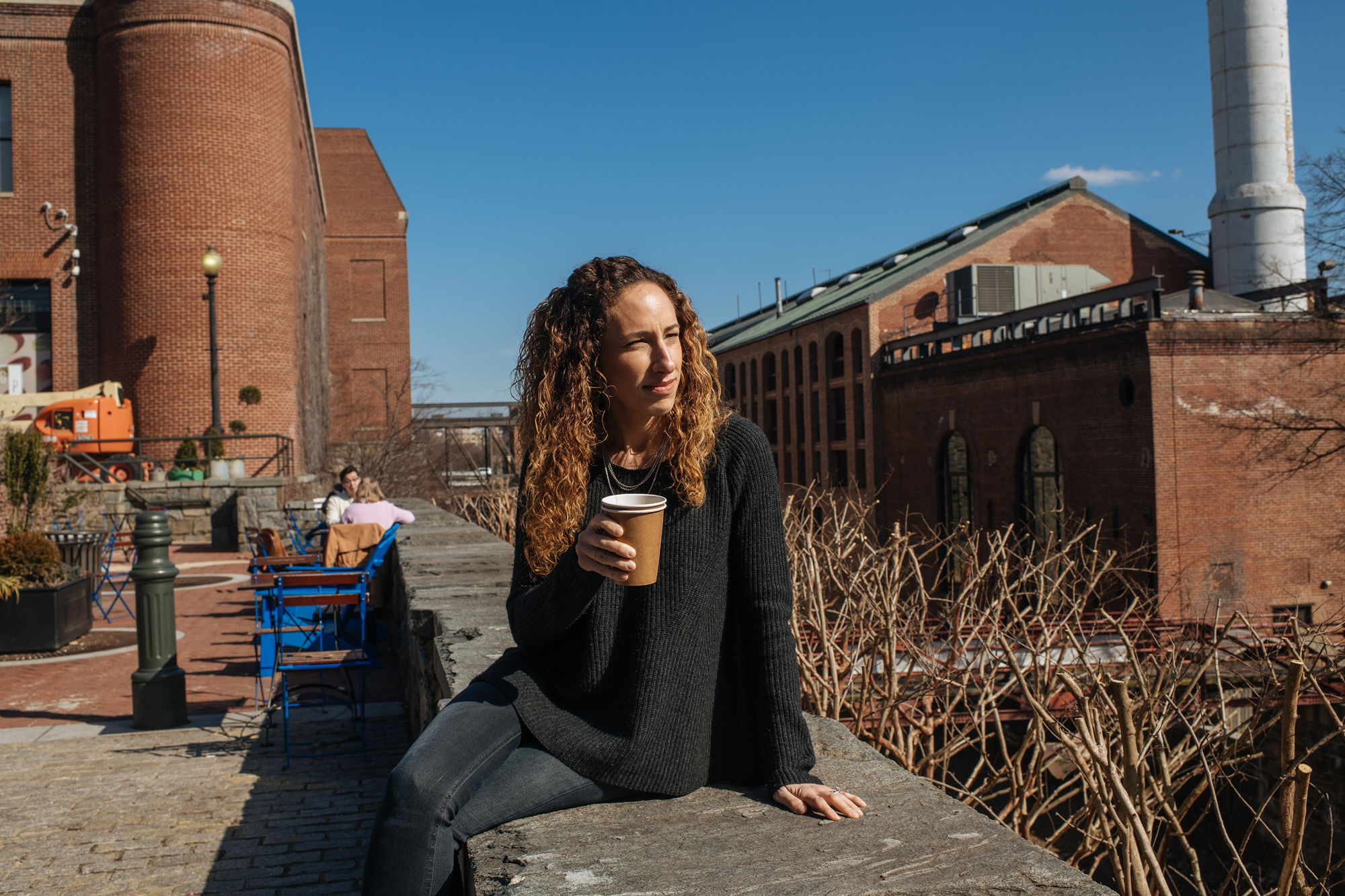‘I Have the Ability to Have My Ear to the Ground’
‘Like drinking water out of a fire hose.’ That’s how someone described having twins to Lisa Palmer. She certainly felt that way with her own infants—the pressure finally subsiding when they went to school.
Coming up for air for the first time in years, Lisa wanted to engage with her Georgetown community in a deeper way.
‘I felt like I had the time and bandwidth to do it, and I found the Advisory Neighborhood Commission (ANC) to be a good way to share what I thought my strengths were, and bring people to the table, including people like me, who may not have already been engaged.’
Drawing on her previous experience working for a non-profit—largely focused on how community building can support the creation and maintenance of park spaces nationwide—Lisa decided to run for Commissioner.
‘One of the things I really wanted to do was create that notion of community that I saw work so well at the non-profit, and create a mechanism and a path for people to engage on the issues that were important to them, whether it was traffic or public safety, or even feeling like they knew the businesses in the neighborhood when walking down their own streets.’
Since her election over two years ago, Lisa has served Georgetown’s approximately 2,500 residents who live in the southern part of Georgetown. One of her primary challenges is debunking the common misperception that few people live in her district, south of M Street.
‘People often think south of M has no more than 50 people living here, and some of the businesses—and definitely many folks in city agencies—have long thought about this area as industrial or just offices. Planning for the area has been reflective of that view. There’s a much better understanding now that there are thousands of people who live down here, including many families with young children. That matters because we’ve been able to create more systems and businesses that support a residential community, in addition to commuters and tourists.’
As Georgetown’s waterfront evolved from a parking lot to a vibrant public park, and new restaurants invigorated once-sleepy Grace Street, Lisa has seen some residents struggle to welcome the change—and additional traffic. Part of her job is giving them an outlet to share those concerns.
‘For some, the development has been great. But it’s about figuring out a way to soften the edges around some of those changes for the people who have lived here for a really long time and liked the quiet. I try to be mindful of how difficult these changes can be. One of the ways to do that is opening up the process to people so they feel involved and are encouraged to share their feedback, both positive and negative. It isn’t enough to just listen. People want their problems solved.’
The ANC can only do so much to usher in those solutions. Lisa has no legislative power, but says her role is to serve as a liaison between the residents and those in the city government to ensure that officials have a firm understanding of hyper-local concerns.
‘There are certainly things we can’t do. I have to work within the laws as they stand. But I have definitely seen how the ANC can be impactful, and seen changes based on our diligent work. Whether it’s the evolution of K and Water Street, testifying in support of redeveloping the West Heating Plant, or negotiating settlement agreements with bars and restaurants in the neighborhood—there’s a lot my ANC colleagues and I can do to gather feedback and make positive changes happen.’
That feedback comes from every direction, as Lisa quickly learned. When she was first elected, a longstanding commissioner recommended she set up a separate phone number for ANC business—something he’d neglected to do when one of his residents called at 2 am to report a burglar in their home. (His advice: Hang up and call 911).
Although Lisa’s schedule is relatively flexible—and she did, in fact, get two numbers—life as a commissioner is often 24/7.
‘I can block out the time I’m going to be really focused on my work, but in order for me to be truly effective, I really need to always be on duty, even when just walking the dog in the neighborhood.’
Lisa’s meetings—both scheduled and impromptu—run the gamut, from onboarding the new U.S. Park Police Lieutenant, to discussing an upcoming bridge closure with a resident on 31st Street, to serving ex-officio on the Georgetown Business Improvement District (BID) Board of Directors. She also works closely with restaurants and bars that are acquiring liquor licenses, or are looking to expand, to ensure they do so in a manner that respects the residents in the neighborhood.
‘When I first ran, I had an email list with one person. Now I have hundreds. I have the ability to have my ear to the ground in a way that the City Council of course can’t possibly, because they are representing significantly more residents from a much larger geographical area. That’s one of the things I like most about serving. I wanted to feel like I lived in a community, and was connected to the people who live and work in my neighborhood. I absolutely feel that now.’
Raised in Baltimore, Lisa’s initial connection to DC came from visiting her grandmother, who grew up on E Street. Now 98, Lisa’s grandmother spent much of her later years typing up their family history set amid drastic community changes. Most memorably, her grandmother recalls when the street lights were converted from gas to electric; how strange it was to no longer see someone lighting them every night, and extinguishing them every morning.
The parallels aren’t lost on Lisa.
‘There were many things she remembered, but that street lamp one is a very specific DC reference, and I feel like we’re in the middle of something like that right now on the community level. The make-up of the community is changing, and how we use the neighborhood is changing. It’s really exciting to work through how we can, in our little Georgetown community, think about these changes and plan for them honestly and transparently, while living in the context of being a historic district.
‘As a commissioner, I really like being part of telling the story of who lives here and making sure we’re thinking comprehensively about those folks as we plan for the future. I love this neighborhood and I’m so humbled to be a small part of shaping this tale.’







